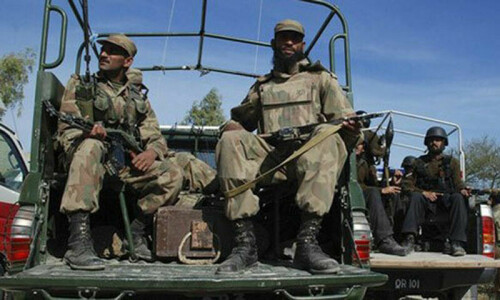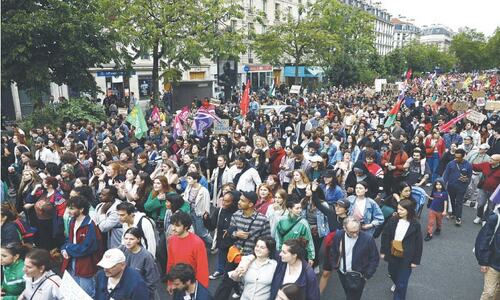ISLAMABAD, Dec 31: Ordinary people in Pakistan and India are facing visa restrictions despite the ongoing Confidence Building Measures (CBMs) while the decades-old communication gap which created hurdles in the way of regional harmony still exists on both sides.
These views were expressed by members of the Joint India Pakistan Peace and Goodwill Mission and representatives of a number of local NGOs during a ceremony held here on Friday.
The event was aimed at highlighting the core issue between India and Pakistan, i.e peace. The mission also includes some members who are visiting their countries of origin (India and Pakistan) after a period of two, three and even four decades.
A member of the mission, Ali Nawaz Memon, who is the former chairman of the National Electric Power Regulatory Authority, Pakistan and living in the US since 1960, said since independence both countries spent billions of dollars in the name of defence budgets despite the fact that millions of people in India slept on roadsides and as many lived in huts in Balochistan and Sindh in Pakistan.
In the 1940s, he said, countries like Korea, Malaysia, Indonesia and South Africa possessed a much less developed infrastructure as that of Pakistan. However, today in Japan, he said, 60 per cent of the students of college-going age were enrolled in colleges, and in the US their number was about 50 per cent. But, in Pakistan, he said, only four per cent of those of college-going age were able to study in colleges of which a majority were studying in private institutions.
Though India and Pakistan had attained the status of nuclear states, their per capita income was only $600 per year compared to $60,000 per capita income in Switzerland. The people in both countries were deprived of basic health and education facilities, employment and human rights and social and economic justice.
During the ceremony, prominent peace activist and teacher of physics at Quaid-i-Azam University Dr A.H. Nayyar was also awarded the shield of Association of Communal Harmony in Asia for being one of the unsung heroes of peace in the region.
Dr Nayyar said peace was a much maligned word in Pakistan because those who conducted nuclear tests were talking about peace and considered as saviours of the country.
"By peace we don't mean peace of graveyard but peace of life. How can we believe those who are having bombs in hands and were talking about peace," he said. Eminent scholar Dr Pervez Hoodbhoy said Pakistan was a country which was neither at peace with its neighbours nor with itself.
Talking about the era of Gen Zia and its aftermath, he said textbooks were manipulated in a way to poison the new generation against minorities and produce religious extremists and anti- India/Hindus mindsets. The general who was against freedom of expression had infused poison of hatred among the new generation.
Vanita Sharma, an Indian living in the UK and doing her PhD from Oxford University, told Dawn that despite living together the people of South Asian region lacked coordination and resultantly remained underdeveloped and could not make any progress in science and technology.












































Dear visitor, the comments section is undergoing an overhaul and will return soon.